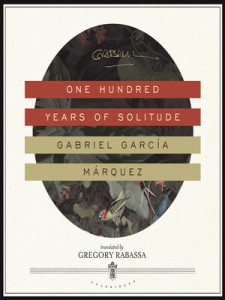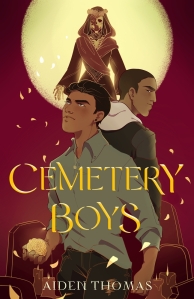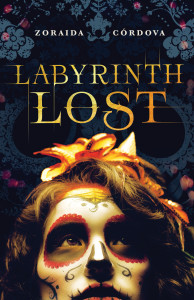Title: One Hundred Years of Solitude
Author: Gabriel García Márquez (translated by Gregory Rabassa)
Genre: Classic/Magical Realism
Trigger Warnings: Death, death of parent, death of children, mental illness, murder, war, sexual content, adult/minor relationship, infidelity, incest, body horror, religious bigotry, rape
Back Cover:
Gabriel García Márquez’s finest and most famous work, the Nobel Prize-winning One Hundred Years of Solitude chronicles, through the course of a century, life in Macondo and the lives of six Buendía generations-from José Arcadio and Úrsula, through their son, Colonel Aureliano Buendía (who commands numerous revolutions and fathers eighteen additional Aurelianos), through three additional José Arcadios, through Remedios the Beauty and Renata Remedios, to the final Aureliano, child of an incestuous union. As babies are born and the world’s “great inventions” are introduced into Macondo, the village grows and becomes more and more subject to the workings of the outside world, to its politics and progress, and to history itself. And the Buendías and their fellow Macondons advance in years, experience, and wealth . . . until madness, corruption, and death enter their homes.
Gabriel García Márquez’s classic novel weaves a magical tapestry of the everyday and the fantastic, the humdrum and the miraculous, life and death, tragedy and comedy—a tapestry in which the noble, the ridiculous, the beautiful, and the tawdry all contribute to an astounding vision of human life and death, a full measure of humankind’s inescapable potential and reality.
Review:
I mainly picked this up because I put it on hold at the library during a (very brief) classics-reading kick earlier this year and promptly forgot about it. When it came available, I figured I might as well read it.
This story chronicles six-ish generations of the Buendía family and the small town of Macondo. Family heads José Arcadio and Úrsula, along with a group of unrelated other people, take a long trek into the jungle and build a town. Their family grows, their children have children of their own, and the Buendía family gets bigger – in number, in wealth, in stature in the town. Times change, war happens, the town becomes less isolated, new scientific inventions happen, the family begins to disperse away from the town. The town of Macondo rises, and then falls, with the Buendía family.
This is a weird book, but from my limited experience with magical realism, this is weird in ways consistent with the genre. It’s like the real world, but a little to the left. Alchemy is a thing that works, there’s a side character who may be immortal or may be already dead, one character gets medical treatment from psychic doctors who are thousands of miles away, a character gets taken up into heaven, and nobody views this as at all out of the ordinary. In fact, magnifying glasses and turning metal into gold are treated with equal seriousness and excitement, like the ability to put the right ingredients into a pot and turn them into gold is a neat scientific advancement like curving glass to make things bigger.
The thing that surprised me the most about this book is that for all its century-spanning scale and magical realism bizarreness, it’s remarkably human. None of these characters are great people, but they’re all doing their best in their circumstances. I found something relatable in every character – in Úrsula’s resourcefulness in keeping the family functional; in José Arcadio’s desire to learn all about cool new things; in Fernanda’s rigid adherence to rules; in Amaranta Úrsula’s desire to leave the small town where she grew up and grow in the wider world; in Remedios the Beauty’s … well, let’s be honest, Remedios the Beauty was who I wish I could be. There are six generations of Buendías, each of whom love and lose, grow and die, succeed, fail, make mistakes, and ultimately just are in all their messy glory. It sounds pretentious to say this book is about the human condition, but it kind of is.
My biggest struggle was keeping the characters straight. Normally I would blame this on the audiobook format, and it is what caused my difficulty remembering Arcadio and Aureliano were two different characters. But the book itself doesn’t make it easy on me, either. This family reuses names a lot – there are three José Arcadios (and one just Arcadio), three Remedioses, and twenty-two Aurelianos (although to be fair, only four of them actually have major roles). There are also 32 biological relatives and 8 spouses stretching across the century this book covers, not to mention characters who aren’t part of the Buendía family. At some point, I felt like I needed to give them numbers to tell them apart.
I didn’t think I was much for the “sweeping family saga” type of book, but if they’re anything like this, I may have to reconsider. I didn’t get particularly attached to any one character (unless you count Remedios the Beauty, who I mainly loved because she’s #goals), but I enjoyed seeing the high-level view of the rise and fall, fortunes and misfortunes of the Buendías. One Hundred Years of Solitude is, much to my surprise, an enjoyable and remarkably relatable book.



